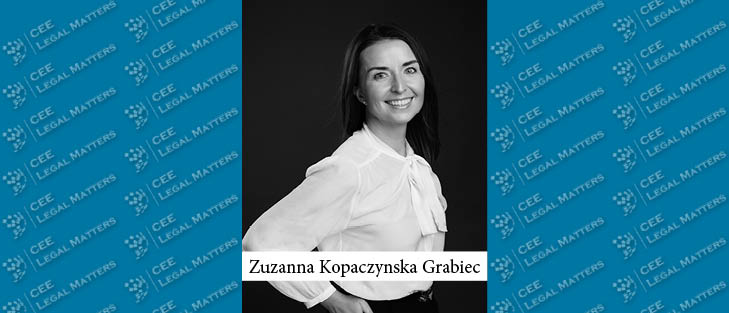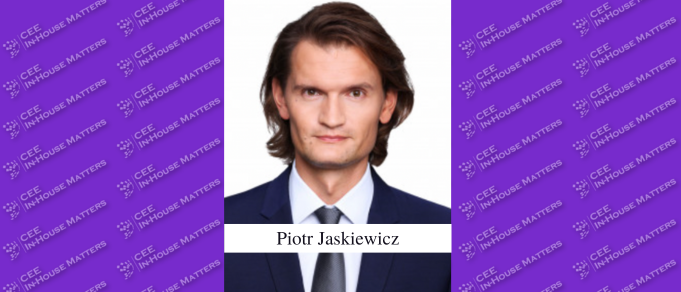Wonga Director of the Legal, Compliance, and HR Department Zuzanna Kopaczynska Grabiec discusses what systems needed to be set up to align with new Polish legislation on whistleblowing and how her team did so.
CEELM: What new whistleblowing systems did you need to introduce in your organization as a result of new regulations?
Kopaczynska Grabiec: Poland has recently implemented legislation in alignment with Directive (EU) 2019/1937, which the European Parliament and Council adopted on October 23, 2019. This directive mandates that EU member states, and consequently, employers within these states, establish legal frameworks to protect whistleblowers. It also sets out clear procedures for reporting breaches of union law and outlines how employers and public authorities should respond. To comply with these new regulations, companies need to take several critical actions to ensure both compliance and the effectiveness of their whistleblowing systems.
The first step involves policy and procedure development. Companies like Wonga must ensure that their existing whistleblowing policies are updated to reflect the new regulations. This includes clearly defining the reporting process, identifying the types of issues that should be reported, and detailing the protections available to whistleblowers. Comprehensive procedures must be established for managing whistleblowing reports, from initial intake through to investigation, follow-up actions, and resolution. Additionally, offering multiple secure and anonymous reporting channels – such as a hotline, an online platform, and a confidential email address – is essential.
Next, we should focus on employee awareness campaigns. It is crucial to educate employees about the new whistleblowing systems, their rights under these systems, and the importance of reporting any misconduct. Training sessions for both employees and management are vital to ensure that everyone understands how to identify, report, and appropriately handle whistleblowing cases.
Protecting whistleblowers from retaliation is a key concern, which brings us to the non-retaliation policy. Companies need to reinforce their commitment to protecting whistleblowers from any form of retaliation. Employees must feel confident that they can report their concerns without fear of negative consequences. Support systems, such as access to counseling or legal advice, should also be established for whistleblowers if needed.
On the investigative side, we have established a dedicated investigation team responsible for thoroughly and impartially investigating any whistleblowing reports. Having a specialized team ensures that reports are handled with the necessary expertise and care.
These measures are crucial for fostering a transparent and ethical workplace. The goal is to create a culture where employees feel safe and empowered to speak up when something isn’t right, ensuring not only compliance with the law but also strengthening the integrity of the organization.
CEELM: Are you relying on a global solution within your organization or local ones? Why?
Kopaczynska Grabiec: Our company has chosen a local solution, which in our opinion is more attuned to the cultural and legal nuances of the region. Since we are providing services only in Polish, whistleblowing channels in the local language ensure better understanding and accessibility for employees, reducing barriers to reporting. Local solutions are tailored to comply with specific national and regional regulations, ensuring that the organization meets all legal requirements. In my opinion, local tools also facilitate smoother communication and coordination with local regulatory bodies, which can be crucial in handling and resolving cases. Implementing a local solution can be also more cost-effective than deploying a global system, particularly for organizations with a significant presence in one region.
CEELM: Did you opt to use in-house resources or externalize whistleblowing? Why?
Kopaczynska Grabiec: We decided to use an integrated whistleblowing system. Using both in-house and external resources for whistleblowing processes offers a balanced approach that leverages the strengths of each to create a comprehensive, effective, and credible system. By using a combination of in-house and external resources, the organization can create a more robust, effective, and trusted whistleblowing system that not only meets regulatory requirements but also fosters a culture of transparency and accountability. External resources bring an impartial perspective, which is crucial for maintaining the integrity of the investigation process and ensuring that all reports are handled fairly and without bias. The in-house resources are well-versed in the organizational culture, values, and internal processes, making them better equipped to handle sensitive issues with an understanding of the internal context.
CEELM: For the external component, are you using an off-the-shelf solution or a tailor-made one?
Kopaczynska Grabiec: We have decided to use an off-the-shelf solution. Developing a custom solution can be costly and time-consuming. With off-the-shelf solutions, the costs are more predictable and often include support and maintenance as part of the package. Off-the-shelf solutions generally require a lower initial investment and can be more affordable in the short and long term. Off-the-shelf solutions can be implemented much faster than custom-developed systems. This is crucial for meeting regulatory deadlines and quickly establishing a functional whistleblowing system. These solutions are often built around industry best practices and standards, ensuring that the organization benefits from up-to-date and effective whistleblowing processes. What is very important from my perspective, providers of off-the-shelf solutions often update their products to remain compliant with new regulations, which helps organizations stay current with minimal effort.
CEELM: To what extent is the legal function in your organization involved once a report is received?
Kopaczynska Grabiec: In our company, the legal team is the owner of the whistleblowing process. By involving the legal function at every stage of the whistleblowing process, the organization ensures that it handles reports in a manner that is legally sound, protects the rights of all parties involved, and maintains compliance with relevant laws and regulations. My team coordinates with internal or external investigators to ensure the investigation is conducted thoroughly, impartially, and in compliance with legal standards. The team provides legal advice to ensure that the investigation and subsequent actions comply with relevant laws, regulations, and organizational policies, ensures that the rights of all parties involved, including the whistleblower and the accused, are protected throughout the process, and maintains comprehensive and confidential records of the investigation process, findings, and any legal advice provided.
CEELM: How have you been promoting the whistleblowing channels throughout your organization?
Kopaczynska Grabiec: The concept of a whistleblower, particularly in Polish culture, can have a pejorative connotation as it is associated with informants. Therefore, it is extremely important to create an environment where employees feel empowered to speak up, knowing that their concerns will be taken seriously and handled appropriately. Promoting whistleblowing channels within an organization requires a thoughtful and strategic approach to ensure employees are aware, feel safe using them, and understand their importance. First of all, leadership should visibly endorse the whistleblowing channels, emphasizing their importance in fostering a transparent and ethical work environment. Regular communications from senior leadership (such as emails, town hall meetings, or video messages) should underscore the value of whistleblowing, reassure employees of their protection, and encourage its use.
We have also created a dedicated section on the company intranet that provides detailed information about the whistleblowing process, including FAQs, case studies, and contact details. With the implementation of the new Polish regulation, we are planning to distribute brochures or flyers that outline the whistleblowing procedure, ensuring that all employees, including those without regular internet access, are informed.





















